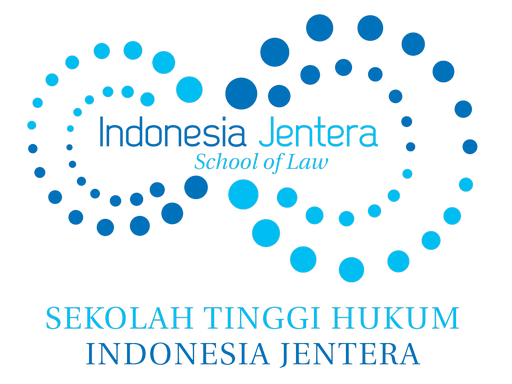In spite of vigorous appeals from Australia for Indonesia to spare the lives of Bali duo Andrew Chan and Myuran Sukumaran, most Indonesians were not persuaded.
Chan and Sukumaran were executed last week, along with five other foreigners and an Indonesian who were on death row for drug charges.
Australia argued that Chan and Sukumaran were reformed men who had learnt from their previous mistake. A reasonable person, regardless of whether they were Australian or Indonesian, would agree that executing a rehabilitated person serves no point.
Therefore, the question lingers. Why did the rehabilitation argument fail to convince the Indonesian public?
Comparing Australia and the Philippines
Some argue that Australian government diplomacy and some public campaign strategies contributed to the failure. The Australian government’s “megaphone diplomacy” created antipathy among Indonesian officials. They prefer quiet diplomacy which emphasises friendship and personal networks among officials. Indonesians also saw social media campaigns such as Boycott Bali as arrogant and offensive.
In contrast, the Philippines government was more successful in its diplomatic strategy to save the life of its citizen, Mary Jane Veloso. The Philippines, one of the ASEAN countries, understands the culture of ASEAN diplomacy. The government avoided the spotlight and noisy diplomacy.
Philippines civil society engaged with Indonesian migrant worker organisations to campaign for Veloso’s life. She was spared at the 11th hour.
Additionally, the portrayal of Veloso as a poor migrant worker who is a victim of human trafficking resonates well with the Indonesian public. It brings to mind images of poor Indonesian workers facing similar conditions in other parts of the world, especially in the Middle East.
But regardless of the questionable approach it adopted, Australia made valid arguments in the appeal to save Chan and Sukumaran. This failed to persuade Indonesians for two reasons.
First, Indonesians are at odds with the concept of rehabilitation for criminal offenders. Many Indonesians consider that the purpose of criminal sanctions is not to rehabilitate offenders but to requite the crimes they have committed.
Second, the flaws and corrupt practices in Indonesian correctional facilities raised doubt about the ability of Indonesia’s prisons to rehabilitate inmates – especially those convicted of drug-related crimes.
A shift from rehabilitation to retribution
Retribution for crime is a concept embedded culturally in some segments of Indonesian society. Many Indonesians hold the view that a criminal is a person who needs to be punished rather than be rehabilitated.
The degree of abhorrence for criminals is based on the types of crimes committed. Traditionally, people who had committed murder or sexual abuse are abhorred more than other criminals. Recently, terrorists, drug traffickers and corrupters have been added to the list.
In terrorism cases, police raids on terrorist suspects often result in death. Some neighbourhoods refuse to accept the body of terrorist suspects to be buried in their local cemetery even if the deceased originated from the area.
This abhorrence is reflected in government policy. In 2012, the Indonesian government enacted Regulation Number 99/2012 which tightens the process and requirements for remissions of sentences for prisoners convicted of terrorism, drugs and corruption crimes.
Initially, Indonesia’s penal system adopted a rehabilitative approach. This was reflected in the 1995 Law on Correctional System. However, the 2012 government regulation shifted the rehabilitative approach to retribution, especially for the above three categories of crime.
The 2012 regulation places an additional requirement on people convicted of terrorism, drugs or corruption offences to get their sentence reduced. They are required to become a “justice collaborator” by providing intelligence on conspirators in the drug or corruption crimes they were involved in.
In many cases, defence lawyers say that it is almost impossible for their clients to meet this requirement, due to the circumstances of the case, such as concerns for their safety or simply because they just do not know.
Corruption in the prison system
In drug and corruption cases, the retribution mindset is exacerbated by the rampant corruption in Indonesia’s prisons. In recent years, Indonesia’s National Narcotics Agency (BNN) has pointed out that correctional facilities have become headquarters of the drugs trade in Indonesia. Many convicted drug traffickers can freely operate their business from their prison cells.
Corruption crimes carry the maximum death penalty, but Indonesia has never sentenced a corrupter to death. In corruption cases, many convicts are released after serving less than half their sentences. They can also enjoy lavish facilities, such as air-conditioned rooms and en suite bathrooms. One high-profile corruption convict had her own own living room with state-of-the-art television set.
Needless to say, the operation of a drugs business or the generous discount on sentence and “five star” facilities do not come free.
Under these circumstances, where drug crimes are abhorred and the prison system is considered not effective in stopping drug and corruption crimes, death is seen as a the ultimate retribution in the most serious crime, such as trafficking substantial amounts of drugs.
Sumber : https://theconversation.com
Dirilis pada : 6 Mei 2015
Link : https://theconversation.com/indonesias-retributive-justice-was-deaf-to-pleas-for-reformed-bali-duo-41233

